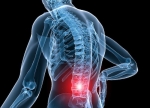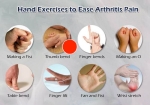Home »
Blog » Pain Management
| Stem Cell, PRP, Acupuncture in Queens & Long Island, New York
Pain Management | Stem Cell, PRP, Acupuncture in Queens & Long Island, New York
When you feel pain, it is due to certain chemical and electric signals that are exchanged between the site of injury and the brain. These signals are carried through your nerves. Neuropathic pain occurs when there is an injury or damage to a single nerve or group of nerves. Neuropathic pain differs from the more commonly understood nociceptive pain. Neuropathic pain occurs due to inflammation, irritation, or compression of the neural tissue. Nociceptive pain is the body’s response to painful stimuli, such as a pulled back muscle or broken bone, and does not relate to an injury of the nerve itself.
Read more
Daily stretching can be one of the best ways to alleviate radiating leg pain from a lumbar herniated disc. The following 3 stretches can help loosen your tight hamstring muscles for better lumbar spine support and reduce pressure on the sciatic nerve going down your leg. Just remember to stop if any exercise causes pain to worsen.
Read more
For the last several months, the home has become a place where many of us work and interact with the world. The use of live video chatting technologies to meet with co-workers or connect with friends and family has become part of the new normal for millions. But the use of all this technology at home can lead to unwanted pain problems or exacerbate existing issues. The human frame was meant to move freely, not looking down and keyboarding while slouching all day long. A number of my patients who have been forced to work remotely have found it challenging to create a comfortable (ergonomic) “workstation” at home and this has led to a whole host of pain problems, including carpal tunnel syndrome, elbow and shoulder pain, headaches, neck stiffness, and back pain.
Read more
Our spines are remarkable they're made up of incredibly intricate systems of bones, ligaments, tendons, and muscles that work together to enable movement in all directions. While all of this movement is great, the potential downside is that it can contribute to injuries and wear-and-tear damage over time that may lead to back pain and stiffness. Understanding how movement impacts your spine can help you better communicate with your physician and hopefully get an accurate diagnosis for faster treatment and pain relief.
Read more
There are times when an overly optimistic attitude or misguided belief about what’s possible can actually get in the way of healing. One example of this is the notion that there is a cure or fix for everything that hurts. Quite understandably, many patients go to their doctors with the goal of getting fixed. They want to find out what the problem is, get it fixed, make the pain go away, and then move on with their lives.
Read more
Many people experience neck pain and dizziness at the same time. Sometimes this is referred to as cervical vertigo or cervicogenic dizziness. This dizziness may come and go or occur with a motion of the cervical spine (neck), and it can involve unsteadiness, light-headedness, blurry vision, ringing in ears, nausea, headaches, and/or other troubling symptoms. Here are a few possible ways that a neck problem may contribute to dizziness.
Read more
Not too long ago, I decided that I wanted to give some medicinal marijuana products a try. I have stage IV endometriosis. This can contribute to chronic pain throughout the month, especially when I’m on my period. But I hate taking the narcotics my doctors prescribed me. I want to believe there’s a better way. So, I’ve been looking into it. Of course, one of the top hits is marijuana for chronic pain. Though there isn’t any research yet that conclusively proves marijuana is an effective medication, there are some findings that suggest it has positive results for chronic pain.
Read more
Pain that starts in one place doesn’t necessarily stay there. Over time, pain can spread, shift, expand, or radiate, from one part of the body to another, making treatment even more challenging. One common way that pain spreads to other parts of the body is through over-compensation, where we start to change our movement patterns to compensate for a part of the body that is injured or hurting. One typical example is a backache caused by chronic pain in a knee or foot.
Read more
Walking is relatively easy to do and one of the most overlooked ways that you can help relieve and prevent future flareups of lower back pain. Two specific and direct benefits of adding a regular walking routine to your lower back treatment program are highlighted below.
Walking Strengthens the Muscles That Support Your Spine - Your trunk, core, and lumbar (lower back) muscles play a vital role in maintaining the stability and movement of your lower back.
Read more
Painful Hands - Arthritis wears away at the cartilage of a joint, which is the cushioning material between bones. This can cause inflammation and irritation of the synovial lining, which produces the synovial fluid that helps protect and lubricate the joint. When arthritis affects the joints of the hands, it can cause pain and stiffness. That pain can get worse whenever you use your hand a lot for repetitive tasks. For example, typing on a computer keyboard or gripping utensils in the kitchen can cause discomfort. You may also lose strength in your hands. Weakness in your hands can make it hard to do even the simplest everyday tasks, such as opening jars.
Read more
Love this Post? Spread the World






















